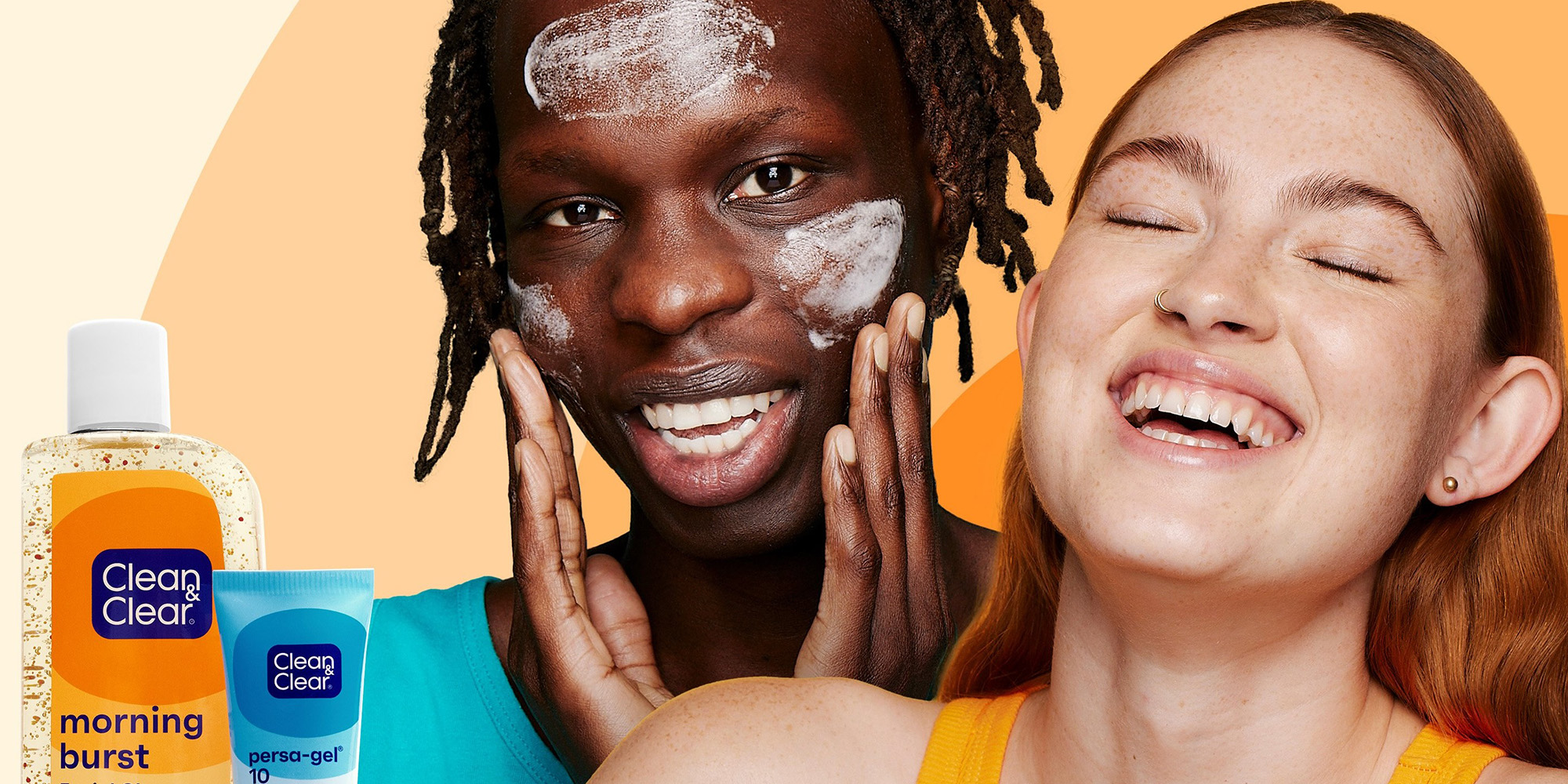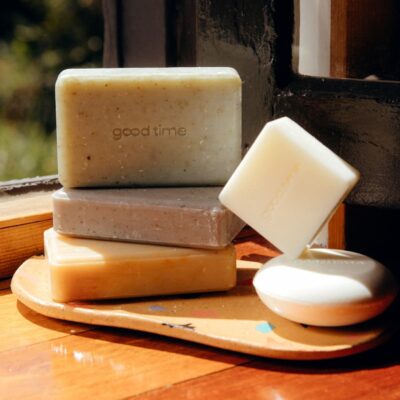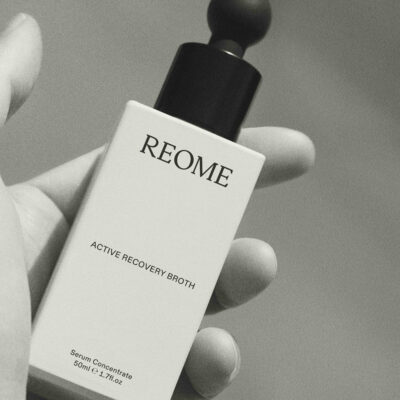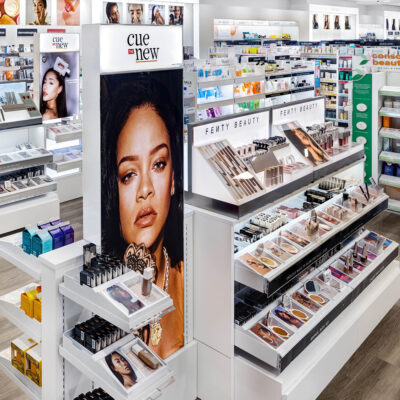
How Should The Beauty Industry Interpret And Respond To Valisure’s Latest Benzene Findings?
Valisure recently released information about tests it conducted on acne treatment products with benzoyl peroxide, including ones by Neutrogena, Clean & Clear, Proactiv and Equate Beauty, showing they can form benzene, a chemical linked to leukemia and other blood cell cancers, at over 800 times the conditionally restricted United States Food and Drug Administration concentration limit of 2 parts per million. The quality assurance company is circulating a petition requesting the U.S. recall benzoyl peroxide products and suspend their sales going forward.
Valisure’s benzene testing efforts didn’t start with acne products. It previously detected high levels of the chemical in dry shampoo, body spray, hand sanitizer and sunscreen. In the beauty industry, there’s a fierce debate about the veracity of Valisure’s processes and results, and what to do about its headline-making testing announcements. Amid this debate, the headlines could be impacting consumer behavior. In a post on LinkedIn, Samantha Evans, Amazon director and educator at Amazon growth agency Envision Horizons, points out “benzene-free” search terms are popping up on Amazon.
With a h/t to Andrew Ross, senior advisor and venture partner, XRC Ventures, the investment firm that’s backed beauty brands such as Barb, Feather & Bone, Minu and Naked Sundays, who candidly admits he’s unsure of how to digest and react to Valisure’s tests in a “balanced way that prioritizes the science over fearmongering,” we decided to dive into the debate over them.
So, for the latest edition of our ongoing series posing questions relevant to indie beauty, Beauty Independent asked 18 cosmetic chemists and beauty product testing experts the following questions: What do you make of the benzene findings? How should the beauty industry think about Valisure and its incentives? How should it be educating consumers about them?
- Valerie George President and Cosmetic Chemist, Simply Formulas
I don’t believe Valisure’s findings have a lot of weight. Their methodologies have already been discredited. In fact, after their last publicity stunt where they found benzene in sunscreens, they received a warning from the FDA for failing "to establish and document the accuracy, sensitivity, specificity and reproducibility of its test methods” as well as using instrumentation that did not meet established specifications.
A lab has to have credibility and valid methodologies for their findings to have any relevance. Valisure lacks both of these, and it sounds like they didn’t learn their lesson from their first FDA Form 483. Therefore, the beauty industry (and consumers) should not put any weight into Valisure.
It’s the responsibility of brands to conduct safety testing, and I assure you—at least after this publicity stunt—the large corporations cited in Valisure’s “report” will make sure they’re buttoned up.
- Susanne Mitschke Co-Founder and CEO, Citruslabs
Finding benzene in any product is unacceptable. It's a known carcinogen and finding it in some OTC and prescription acne treatments emphasizes that we need more stringent testing, quality control, and continuous product monitoring post-market. Unfortunately, it is not uncommon. In recent years, toxicology labs have found benzene in dry shampoo, some sunscreens and even hand sanitizers.
However, finding benzene even in prescription products shows that there is something broken in the manufacturing process. Companies typically don't add benzene on purpose into their products, it is rather a result of contamination or a byproduct during manufacturing. So, this is where we need better oversight so that things like that don't happen.
Independent testing bodies like Valisure play a critical role in the beauty and health industries by providing an additional layer of scrutiny, which helps to ensure consumer products are safe and comply with regulatory standards. However, these organizations must operate with complete transparency regarding their testing methodologies and the incentives behind their research.
I understand that some people might find the incentives of Valisure questionable given that it is good for their business if they find something. However, I also understand that Valisure has already uncovered various contaminants in consumer products. Overall, I think it's beneficial for the beauty industry to recognize that Valisure is a watchdog that can prompt industry-wide improvements and simultaneously catalyze consumer trust.
By uncovering issues like the benzene contamination, Valisure prompts companies to revisit and potentially improve their quality control processes, sourcing and manufacturing practices so that it doesn't happen in the future. Working constructively with these third-party testing labs can help beauty brands demonstrate transparency and build trust with consumers.
If a result is not what a brand would have hoped for, acknowledging third-party testing results and taking corrective actions when necessary shows a commitment to consumer safety. I think that it can help the industry exceed standards and differentiate brands in a competitive market. But, again, these third-party testing labs must be very transparent about their methodologies as well.
Educating consumers about the safety and efficacy of products is paramount. Instead of looking for excuses, the beauty industry should lean into these results, address them transparently and paint a way forward. The industry must come together to provide clear, accessible information and engage in open dialogues with our consumers about how these products are tested for safety. The industry should also educate consumers about testing methodologies and how often these tests are done.
Additionally, hosting educational webinars and participating in industry forums are ways we can help to inform consumers better and address their concerns proactively. The beauty industry should address independent testing results and consumer safety concerns through a comprehensive approach that prioritizes transparency, education, and engagement.
By openly sharing testing results and methodologies, creating accessible and expert-backed educational content across various platforms and proactively communicating through FAQs, customer service and social media Q&As, companies can build trust and empower consumers (instead of scaring them). Additionally, guiding consumers on how to interpret these results and advocating for higher industry standards demonstrate a commitment to product safety and consumer well-being.
Collaboration with regulatory bodies, independent testers and industry peers to standardize testing and communication practices further solidifies this commitment, ensuring consumers are well-informed and confident in their product choices.
- Esther Olu Cosmetic Chemist And Licensed Aesthetician, The Melanin Chemist
I think the findings were severely taken out of context and obtained under unrealistic settings, significantly altering the interpretation of the findings and their implications. The unrealistic settings that Valisure utilized led to misleading conclusions about the potential risk of benzene exposure posed to consumers.
Because of this, it is essential to critically evaluate the methodology used by Valisure to conduct the tests and assess whether the conditions accurately reflect real-world scenarios. The murky findings Valisure obtained raise questions about the validity and relevance of the findings as well as the validity of the company itself.
Of course, even if unrealistic settings influenced the reported benzene levels, it doesn't negate the importance of ongoing quality assurance and safety monitoring within the beauty industry. Robust testing protocols and regulatory oversight are crucial to ensure that products meet safety standards and protect consumer health.
This is the second time Valisure has come out with a report like this. The first time was sunscreen, and now it is BPO. This isn't a coincidence. The beauty industry (and consumers) must think critically. Context is key. The industry should respond with vigilance, critical thinking and proactive measures.
Firstly, it's imperative for the industry to prioritize evidence-based research and rely on credible scientific studies to assess ingredient safety and efficacy. Transparency and accountability are equally crucial. Companies (in this case Valisure) must disclose any financial incentives or partnerships that could bias their messaging, fostering consumer trust.
I do not believe it was public knowledge that Valisure had a patent for stabilizing benzene (props to Stephen Ko for unveiling this information). Furthermore, there needs to be consumer education initiatives that should empower individuals to discern between factual information and fear-based marketing tactics, enabling them to make informed decisions about beauty products.
Valisure needs to contextualize their testing properly. Specifically, what is the purpose of stability testing? What are the actual implications of testing products at accelerated or below RT temperatures? Educating on the links between benzene and occupational exposure, what benzene is, other sources of benzene exposure (outside of cosmetics), and principles of toxicology would do a lot more in educating consumers than sensationalist titles with flawed testing.
Valisure preys on consumer ignorance rather than properly putting their "results" in relevant and applicable contexts for consumers to understand and make better-informed choices.
- Marc N.G. de Mul President and Chemical Engineer, Measured Innovation
The Valisure findings are very concerning. The proposed chemical mechanism they propose for benzene formation in benzoyl peroxide containing products at elevated temperatures is plausible in my opinion.
If independently confirmed, the findings should lead to reformulation of acne products with BPO by addition of an antioxidant, preferably a biobased ingredient such as grape seed extract.
The best way to reassure consumers that the products are safe is by recalling products known to generate benzene at high temperatures until they can be reformulated. Meanwhile, products with BPO should not be exposed to temperatures of 37 degrees Celsius or higher. I would keep mine in a fridge!
Valisure may benefit from the publicity around its more spectacular findings such as this one. However, its methodology appears sound. The test results should be critically assessed by independent chemical analysis, but they should not be downplayed.
- Marisa Plescia Senior Product Innovation Chemist, Bell International Laboratories
Benzoyl peroxide is an FDA-approved active ingredient in the OTC anti-acne monograph in the levels of 2.5% to 10% and has been used in skincare for over 60 years. With its bactericidal function, it works as an effective acne treatment. Due to its chemical composition, benzoyl peroxide does have the potential to decompose into benzene under elevated temperature conditions.
The series of analytical testing that Valisure performed seems to try to study that property of benzoyl peroxide in products on the market. This is different from when Valisure looked at benzene in products on the market in 2021, which is more linked to propellant trace contamination.
By looking at these studies conducted by Valisure and analyzing both their testing conditions and the data, the only conclusion we can come to over Valisure and their findings is that we need more data and information before we call out any concerns.
In the report released by Valisure, there are data gaps in what has been reported, and honestly I would like to see all the data and results to further understand.For example, Valisure just notes that in initial analysis on 99 benzoyl peroxide products, Valisure detected benzene in 94 of them and “often with values well above 2 ppm in an initial analysis.”
However, we do not know the details of these results tied to that statement. The word “often” is so broad and means little in terms of a statistical analysis. There is also no information on the collection, the storage, the expiration dates, etc., of those products tested.
In the petition released by Valisure, the company seems to focus most on the data of a study in which 66 products were incubated at 50 degrees Celsius for 18 days. In this study, the levels of benzene appeared to be higher throughout the tested intervals when compared to the readings at day 0. The glaring issue here is that these study conditions behind these results lack realistic consumer habits and real-life conditions. Fifty degrees Celsius correlates to 122 degrees Fahrenheit!
Valisure calls this a “reasonable temperature” that the product could be exposed to and calls out accelerated stability studies that are normally conducted at elevated temperatures conditions for shelf-life. However, it is not reasonable to perform accelerated testing at very high temperatures for very short periods of time and extrapolate those results or expect those results to be correlative since the actual mechanism of degradation at high temperatures may be different than at room temperature.
In order to really understand the potential degradation levels of benzene in benzoyl peroxide, a longitudinal, real-time study of these products at the recommended storage conditions needs to be performed. There are many more points to bring up including questions if benzene does actually pose a risk when topically exposed, but at the end of the day this just shows us that once again as an industry we need to further our investigations.
I would bet money that no one in this industry wants to purposely expose people to benzene. We, even as the formulators and other individuals in the industry, are often consumers of these products and thus consumer safety is of always concern. For this reason, we need to further the investigation and encourage proper storage conditions for products to help quell any consumer reactions and any regulation effects.
I do see the importance and value in third-party testing facilities to confirm and affirm any research on drug stability, consumer safety, etc. We are all one team in this sense. With that probably too idealistic notion, we then do have to look at Valisure as a whole with their own business interests.
Interestingly and timely, the CEO of Valisure, David Light is listed as an inventor on the patent “Shelf-stable formulations of benzoyl peroxide and methods of producing same” filed on March 2023. I have not read this patent in detail and analyzed it, but the business interest in this sense may need to be further reviewed and looked into as a whole.
With Valisure and similar companies, we as an industry can and should encourage validated research and data and work with them so that we can better understand products, chemistries and consumer health and safety. But to take this information and to expose this data to consumers without expert/peer review, full knowledge of the intricacies, assumptions and presumptions and thus without conclusive findings is imprudent.
At this point, we as an industry need to work on developing a symbiotic relationship so that we can all work to keep the consumer interest in mind.
- Krupa Koestline Founder and Chief Cosmetic Chemist, KKT Labs
Valisure has released a few studies showing benzene contamination in various products like aerosol sunscreen and aerosol deodorants in the past few years. This latest study with benzoyl peroxide is a little different as benzoyl peroxide breaks down into benzene in high temperatures over a long period of time.
The study only released data from tests performed at 50 degrees Celsius (122 degrees Fahrenheit) and 70 degrees Celsius (158 degrees Fahrenheit) over a period of two weeks. When we perform stability tests in the lab, we always consider real-life applications. We do sometimes conduct a test at 50 degrees Celsius for one week to stress test the product. But, again, this is a “stress” test, and it still doesn’t go beyond the one-week period.
Even a hot, steamy bathroom is not going to be at 50 degrees Celsuis continuously for two weeks. No one is storing their acne products in the oven. If someone does keep their skincare products in the car in the sun, we always recommend that they toss it out regardless of what it is. I would be curious to see the data from tests performed at 37 degrees Celsius and from tests that more closely resemble real-life product storage and usage.
Other things to note: Most of the products tested are safe. We don't need to stop formulating with BPO. We just need to continue to be careful and transparent about sourcing, setting appropriate parameters to approve and reject a material before it gets used, conduct appropriate testing after production and follow GMP guidelines.
- Elham Eghbali Cosmetic Chemist and Formulator, SkinChakra
Despite most of my cosmetic chemist colleagues, I think this finding and the similar ones are quite alarming. We don't want to surf on the fearmongering waves and create a scandal from these news, but they must be a wake-up call to the industry, formulators as well as the regulators and safety assessors.
There are several objections to Valisure results about the benzene being produced and released during the unrealistic testing conditions (very high temperature) that will not happen during the normal life cycle of the product. Maybe the products are kept in air-conditioned retail stores, but how are they transported in summer?
It is even worse in online deliveries. The parcels are loaded in non-air-conditioned vehicles in which the temperature can easily raise over 50 degrees Celsius in summer during a day's tour. Unless we start transporting these products in cool boxes, there is no way we can guarantee the product is not exposed to high temperature during transport, even if we assume that the consumer follows the manufacturers recommendations for storage and application to the letter.
Obviously, nobody adds the benzene deliberately to the formulation, so this means either the content of the inevitable impurity was alarmingly high from the beginning and the manufacturer didn't care or something has happened in the formulation-packaging-storage process that caused the interaction and release of such high quantities of the carcinogen.
Either way, this means more meticulous testing of the raw material and stability testing of the finished product are needed. Remember these are products from established brands with state-of-the-art technology. If they fail to test and detect unwanted impurities, then we'll need more of these independent tests in the future.
As our analytical methods are becoming more sophisticated and elaborate, we will detect impurities and byproducts at concentrations that were not detectable (and not considerable) two or three decades ago and we will have scenarios like this even more often in the future.
I think this should be a wake-up call for the beauty industry to rethink the formulation and stability testing fundamentally and in flow with the improved analytical technology as well as consumer demands for "safer" products.
Although educating the consumer to clarify the myths and misleading information about the cosmetic products is a necessity that is long overdue, I think in this specific case it’s the industry and the formulators that must be addressed.
- Rachel Robertson Johnson Founder and Chief Cosmetic Chemist, The Charismatic Chemist
The findings are alarming, but not surprising. The delivery seems to be a bit on the fearmongering side of press releases. However, the shock value will produce buzz/action that is needed to improve awareness of the life cycle of BPO products.
Valisure works outside of our industry and does their due diligence to report back with their findings upon failure. The beauty industry should act accordingly with the provided study by conducting more in-house testing to confirm Valisure's findings and then using market withdrawal tactics, reformulating and heeding the use of antioxidants to result in more stable and trustworthy BPO products in the U.S. market.
Press releases and media alike are the only way to broadly report scientific information to society. Hiring reputable science communicators is vital to the success in delivery of such information. We are educated and trained to be able to break down these findings in a digestible and sometimes fun way. This is how education should be.
- Angella Sprauve Cosmetic Chemist and Clean Beauty Product Developer
I find the findings from Valisure concerning, but also as a call to action for heightened scrutiny regarding product safety and testing. Valisure's incentives, namely their commitment to ensuring the safety and efficacy of consumer products, align with the industry's responsibility to prioritize consumer well-being above all else.
I believe these results can serve as a step in the right direction for the beauty industry to begin collaborating with regulatory agencies, independent testing organizations and consumer advocacy groups to establish and uphold stringent safety standards.
By prioritizing transparency, education and consumer safety, we (as product development chemists and beauty brands) can ensure that products we develop meet the highest standards of quality and efficacy, fostering trust and confidence among consumers.
- Gabrielle Nekrasas Founder, Chief Scientific Officer and Cosmetic Chemist, Nanuvo Labs
Given Valisure’s recent findings that BPO degrades into benzene at and above normal body temperature, it is pertinent to continue testing to further validate these results and determine the potential impact on public health. These preliminary findings are concerning given highly elevated levels of benzene were found to be present in commonly used acne products.
Although benzene is ubiquitous in the environment, highly elevated levels in topical products, especially those that come in contact with injured skin such as in acne skin can be potentially hazardous to long term health. However, to prove causality, further longitudinal studies will have to be conducted.
It will be interesting to see what studies will be carried out not only by third-party labs, but also by governing bodies such as the FDA to conclude whether or not these elevated levels of benzene do in fact play a contributing role in the development of disorders such as cancer in humans.
Given the magnitude of these findings and the widespread and long historical use of BPO in acne products, this discovery could potentially be as significant as the findings that talc in baby powder carries a potential cancer risk.
- Aubri Thompson Founder and Cosmetic Chemist, Rebrand Skincare
From an internal perspective, brands and manufacturers should take stability testing seriously. Analytical stability testing should be performed for all OTCs and would show active ingredient degradation if it is occurring. If you have these results in hand, you ensure consumer safety and protect yourself against third party investigations.
For the beauty industry at large, consumer protection is still not where it should be, which leaves the door open for third-party involvement. This isn't always a bad thing, but there are two ways to close the gap: more transparency on the part of brands and improved consumer protection laws. We should seek both.
- Lipika Hegde Product Development Consultant
I think it's important for us to acknowledge that not all studies or research papers accurately replicate real-life situations and conditions. This particular case is no exception.
Therefore, making assertions about benzene in a study where the product is subjected to extremely high temperatures for prolonged durations could potentially cause unwarranted fear among consumers. Such circumstances are highly unlikely for the average consumer. Benzoyl peroxide has years of clinical validation affirming its efficacy. Thus, there's no cause for alarm in this regard.
Moreover, the industry takes proactive measures by providing storage instructions. Most products clearly mention to store the product in a cool environment.
Given consumers' awareness regarding the need to store vitamin C away from heat and light and refrain from storing sunscreens in cars, these instructions likely come as no surprise. Analogously, various food items have specific storage requirements, as observed with milk that are consumed without any fear.
In essence, it's crucial that our messaging emphasizes the industry's commitment to delivering solutions in a safe manner.
- Julie Pefferman Founder, Cosmeta and The Lab & Co.
Benzoyl peroxide has been very popular for acne, particularly in the years when Proactiv put the acne three-step routine on television, and it’s absolutely been well-established that benzene can result from benzoyl peroxide, especially in heated conditions. Lots of BPO products on Amazon, for example, are inevitably exposed to heat during transport.
I am not the biggest fan of benzoyl peroxide because it basically nukes the skin barrier. I have advocated for it not to be put in body wash, where it inevitably ends up in intimate parts.
The bigger issue at hand in my opinion is the lack of FDA-approved monographs for exciting new acne ingredients. Unlike the issue of benzene in sunscreen, benzene from benzyl peroxide is a chemical reaction that is known to occur, meaning it can happen even in stable formulas. However, there are many other skin barrier-safe ingredients that can be used for acne with safer profiles.
- Ginger King Founder and Cosmetic Chemist, Grace Kingdom Beauty and Fan Love Beauty
BPO and benzene are related structurally, but not the same chemically. BPO does start from benzene. Assuming this is a legit testing company in testing with integrity and during the pandemic the raw material supply was in limbo, there could be impurities or unreacted benzene in the product.
Now, checking benzene levels in beauty products may not be part of the quality control requirement as people only check for the percentage of actives in this case BPO only as the active to treat acne.
It is very unlikely to have BPO revert back to benzene unless under extreme conditions so the suspect for what we are seeing is the residual effect from supply chain issues during the pandemic. Additionally, who is to validate that company's testing method and protocols for their finding?
As far as consumers are concerned, OTC products have expiration dates and just store the product how you would typically do in a cool condition and throw away if it is expired. For super concerned people, there are other active ingredients available for treating acne such as sulfur or salicylic acid.
- Angela Umelo CEO, Salt + Earth Labs
Firstly, if benzene is formed under any reasonable conditions of use, this should certainly be addressed. The fact that there are potentially worse sources of benzene exposure in our everyday lives does not negate the issue, and any mention of this is purely a logical fallacy.
It’s not about fearmongering, but rather awareness, and any opportunity to improve the processing and handling of products containing benzoyl peroxide should be welcomed.
However, the Valisure findings have raised several important points about how easily data can be cherry-picked and the risk of bias when there are financial incentives. So, without independent and truly impartial verification of the safety data should we dismiss it, no! Should we be cynical? Always!
- Melissa Christenson Founder and Cosmetic Chemist, Bridge Product Design
After reading the [Valisure] press release, this is a very surprising and strong statement given the fact that benzoyl peroxide is not only approved by the FDA for use in acne products, but has been safely used in topical products for years. I see that the PCPC has also put out a statement to this effect.
Clearly, additional evidence is needed to validate this lab's findings. Specifically, were the conditions the products were tested under unreasonable and were proper controls put into place to ensure that the test results were valid? It would seem to me that if there is no benzene actually found in products on the market then their study is simply alarmist.
- Joyce De Lemos Co-Founder, Chief of Product and Cosmetic Chemist, Dieux
With any scientific test, it's really important to understand the testing methods and conditions that were used. Valisure tested the concentration of benzene of products containing benzoyl peroxide. They initially reported the results for benzoyl peroxide (BPO) products that were stored at what we as cosmetic chemists consider "stress testing conditions."
BPO products were stored in ovens that were at temperatures of 37 degrees Celsius (98.6 degrees Fahrenheit), 50 degrees Celsius (122 degrees Fahrenheit) and 70 degrees Celsius (158 degrees Fahrenheit) for 18 days. We know that over a certain temperature, benzoyl peroxide will degrade into Benzene. After being held at elevated temperatures for over two weeks, the products had elevated levels of Benzene.
The question is how applicable are these testing conditions to real life? The truth is that most people are not storing their benzoyl peroxide products at 70 degrees Celsius (158 degrees Fahrenheit) or even the lower tested temperature of 37 degrees Celsius (98.6 degrees Fahrenheit).
Additionally, the prescription and over-the-counter anti-acne products that were tested have expiration dates informing you when to stop using the product, which should help with exposure to any potential benzene if your product has degraded over time. Overall, I think that this information is useful when thinking about how companies instruct their customers to store their benzoyl peroxide formulations.
Lastly, I think it's important to note that there were a handful of products that were tested that contained benzene at the initial timepoint, and these need to be looked into further. I think it would be helpful to understand how these products were stored and handled prior to testing and how old the products were.
- AJ Addae Founder and Cosmetic Chemist, Sula Labs
In terms of the Valisure story, this is a shining example of how important it is to focus on what scientists call rigor and reproducibility of studies. The testing methods by Valisure are by no means applicable nor reproducible to consumers.
As we know, the products were heated up over 100 degrees for nearly two weeks straight, which is not applicable to consumer use conditions. At such high temperatures, chemical reaction kinetics can be sped up, and chemicals can degrade.
Furthermore, there's a longstanding history of benzoyl peroxide's safety data profile, which is a requirement for over-the-counter usage in personal care products. Moreover, I think this goes beyond a black and white dichotomy of, "Is a product safe or not?"
A common idea I have heard from those in product development is that "personal care science is not an exact science.” I believe that this notion of personal care being exempt from academically rigorous research standards is a strong reason why pseudoscience and poor study design can run rampant in our industry.
My job as a cosmetic scientist is to help provide boundaries, protocols and standards for personal care chemistry as an exact science, especially in how it lends itself (and historically has not lent itself) to diversity and inclusion. In an ideal world where cosmetic chemistry is an exact science, study conditions such as these would be regarded more easily as exactly what they are, absurd.
If you have a question you’d like Beauty Independent to ask cosmetic chemists, testing experts and others, please send it to editor@beautyindependent.com.




